Im Namen der Freiheit
What does “freedom” mean in today’s multifaceted society? As part of Science Year 2024 - Freedom, an interdisciplinary team from the Public History department at the University of Hamburg launched the project Im Namen der Freiheit (“In the Name of Freedom”). This initiative gathers diverse voices and perspectives from Germany’s civil society, theater and cultural community preserving them in the Freedom Archive as a resource for future generations and researchers. We were commissioned to support a sub-project of this initiative: the Freiheitswerkstätten (Freedom Workshops). Serving as moderators and community managers, we facilitated the networking of 15 volunteer cultural practitioners, creating a platform for enriching exchanges.
Universität Hamburg Im Namen der Freiheit 2024
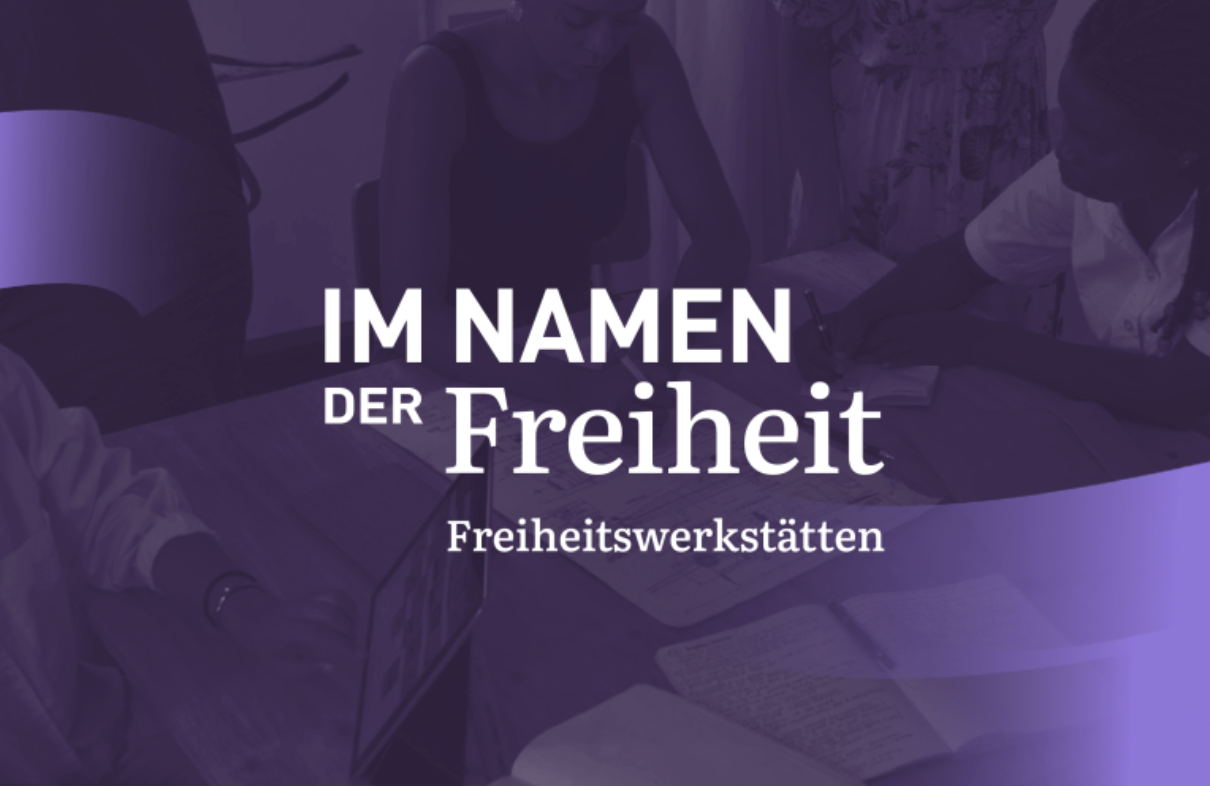
It began with an Open Call: The project wanted to attract applicants that will realize a freedom workshop. In that they wanted to see a range of e.g. Vereine (non-profit associations), collectives, initiatives or other cultural actors that move in an interesting polictical, social or artistic context. All in all people that are highly active in their local surroundings in which they can implement a project (freedom workshop) which helps drawing a picture of what freedom means in there.
We helped sharpening the profile of these wanted applicants, worked out how to reach them and motivate them to apply.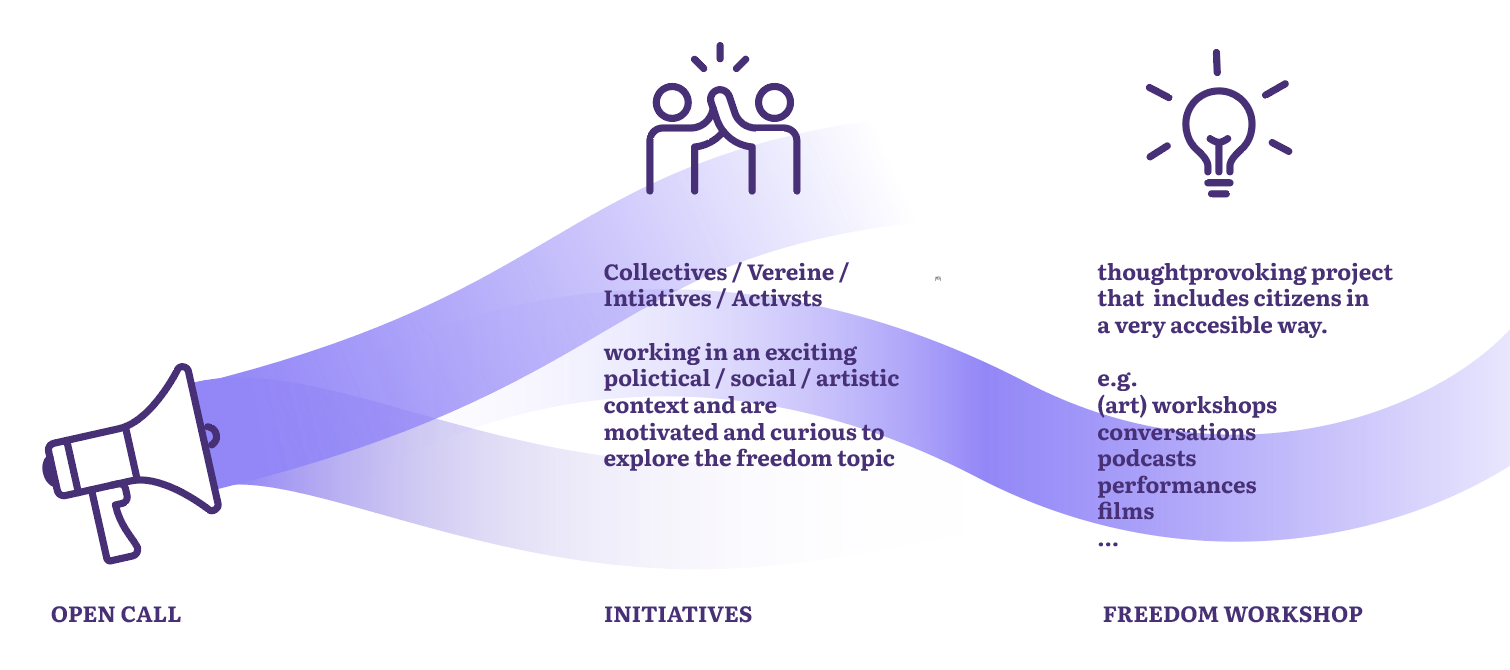
To provide the 15 selectes initiatives actual useful support, we were not “coaching” them how to do their work but rather wanted to provide a benefit beyond the freedom workshops: A network between these voluntary groups to share their knowledge and foster future cooperations. To ensure we all stay in touch and we can regularily check in on the groups needs to react accordingly flexible, we created the format of the Salon. The learnings gathered during this process of supporting a decentralized workshop network of voluntary culture actors came together in a compilation.
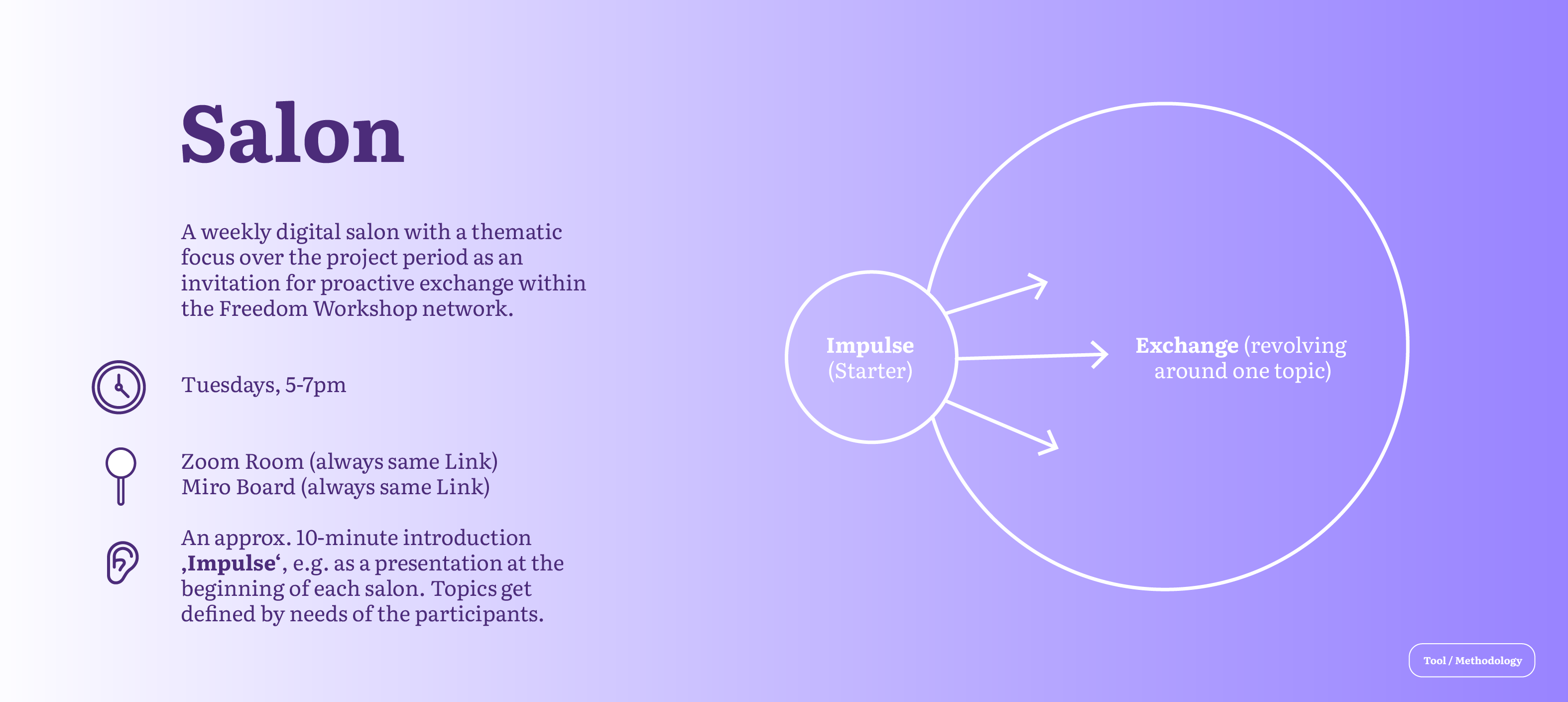
Cultural volunteers as in this project often have little time to network, as they often work in understaffed constellations and the maintenance of cultural initiatives ties up almost all of their capacities. However, there is great added value in networking between these actors: there are common relevant topics on which knowledge can be exchanged and emotional support can be found in discussing similar challenges. In the context of e.g. dependencies on funding, a lot of additional voluntary work among cultural volunteers and the associated challenges (burn-out, lack of funding, etc.), it is helpful to differentiate or compare with each other: What are personal achievements, failures? What are structural problems for which no responsibility can be taken? What is within the power of the actors, what can they not change? And how do like-minded people deal with similar situations? A space for exchange can also be a space for deepening and exchange of helpful experiences, e.g. in the topic of funding. The format of the Salon proved being useful for this.
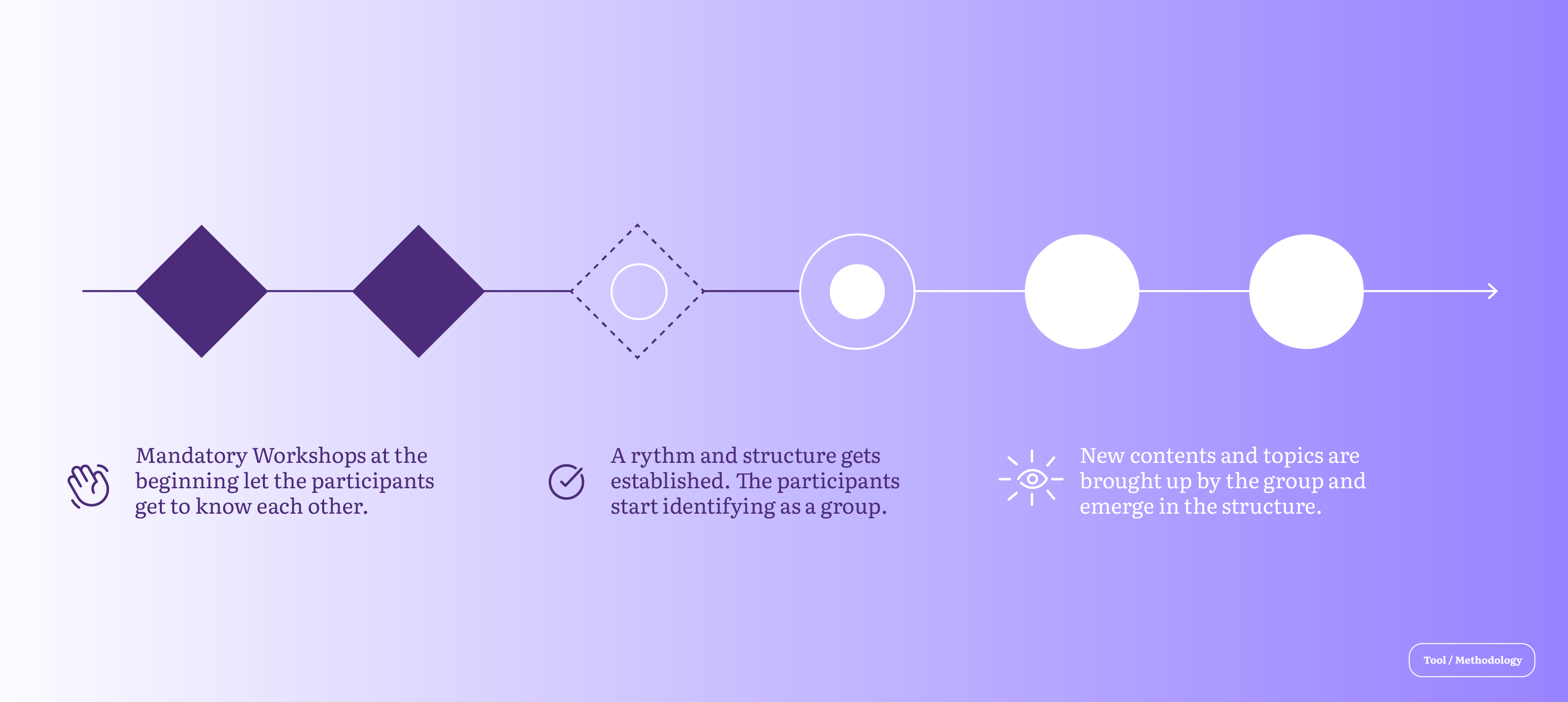
Learning: Establish Continuity
Busy actors, such as volunteer cultural workers at the Freiheistwerkstätten, usually oversee several projects at the same time. Creative processes and the day-to-day business of cultural initiatives also tie up a lot of capacity and gaining the voluntary attention of these stakeholders can be a challenge. It is therefore important to prepare formats in a predictable and reliable way. This offers room for growth, according to the motto ‘constant dripping wears away the stone’.
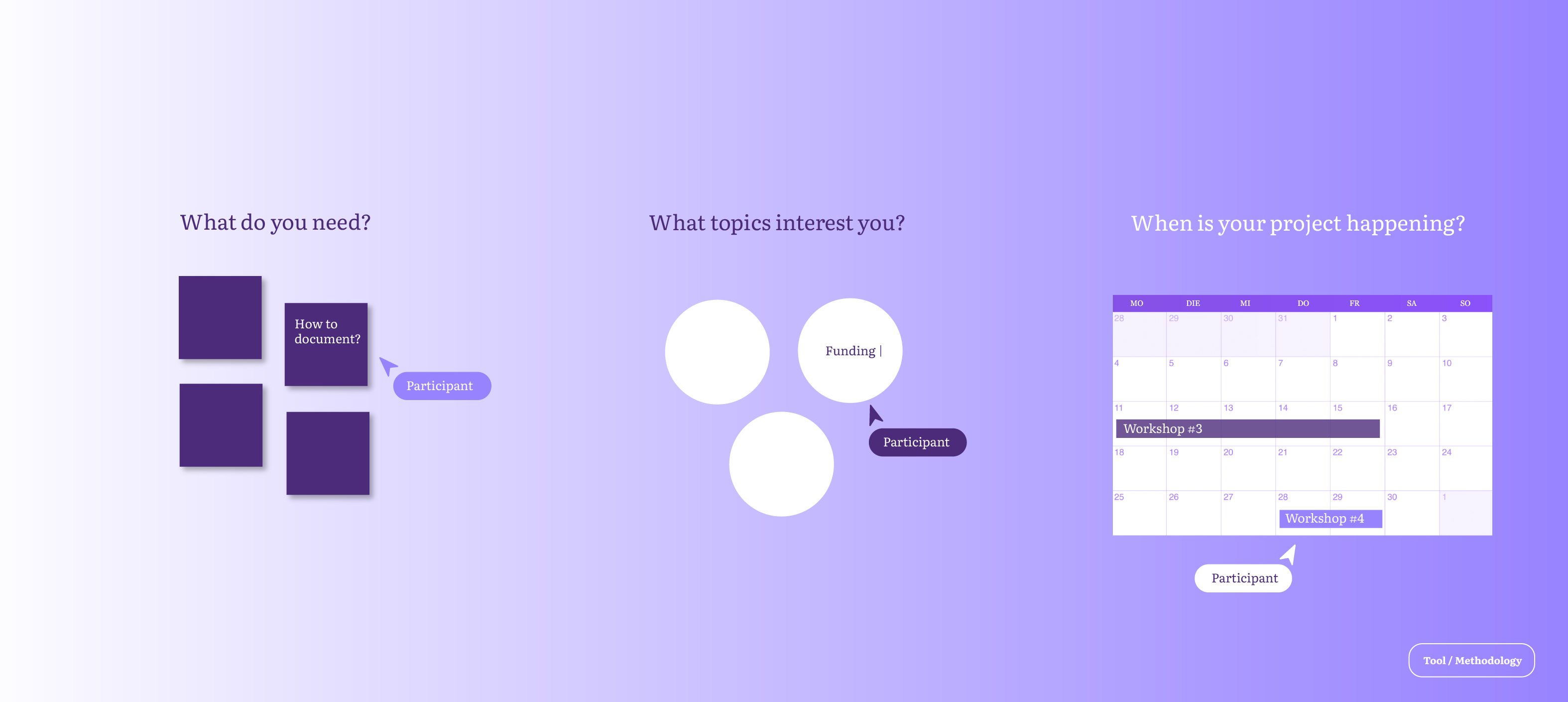
Learning: Befriend Agilit
Every project needs at least a rough roadmap to know where it is going. In order to properly support the participants of the Freiheitswerkstätten, many variables that were unknown at the beginning could not be predefined, as in other projects. A rigid plan that was devised in theory before the start can be useless in practice. An important learning was therefore: agility, i.e. remaining flexible in how we organise support for the Freiheitswerkstätten. And to incorporate this processual approach from the outset as a basic attitude in methodologies and project planning. From week to week, meeting to meeting, instead of anticipating support, we asked about needs and reacted to them. Another unknown factor is what knowledge and expertise the project participants themselves already have and what ideas they have. Tapping into this knowledge and giving participants the space to share it with the group also strengthens self-efficacy and motivation.
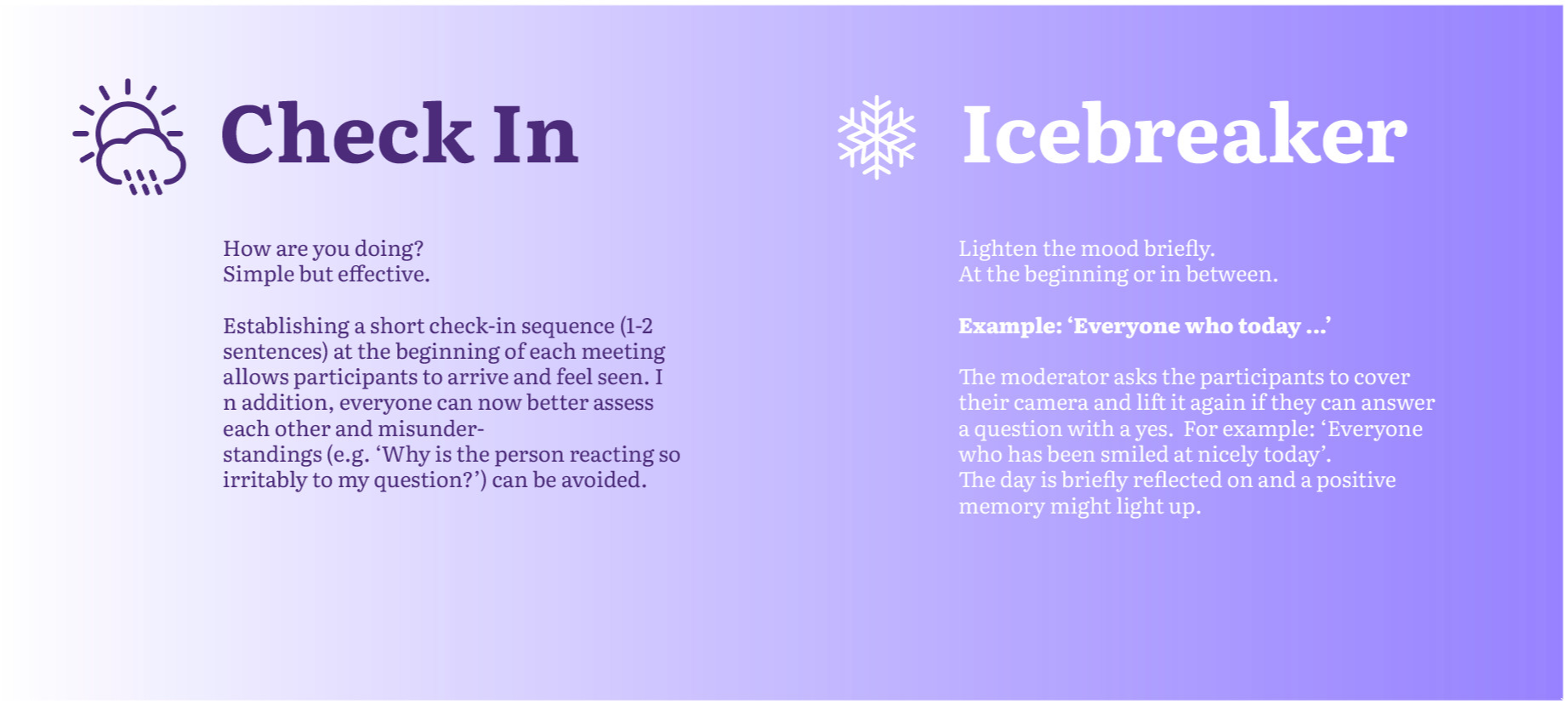
Learning: Don’t forget the human touch
In a decentralised voluntary project group whose communication takes place almost exclusively digitally, it can be a challenge to create a group feeling or a personal atmosphere so that the participants remain communicative. Even if a videocall is much more personal than an email, it still remains digital. In order for a loose group of passive observers to become, in the best case, a community of active participants, the experience of being part of it must be considered at every point. So it is simple, but effective: A moderator who pays attention to the necessary ‘human touch’, i.e. the interpersonal aspect and a certain fun factor, therefore brings great added value. This has the advantage that the focus of meetings is not just on productivity and the participants are more holistically involved.


